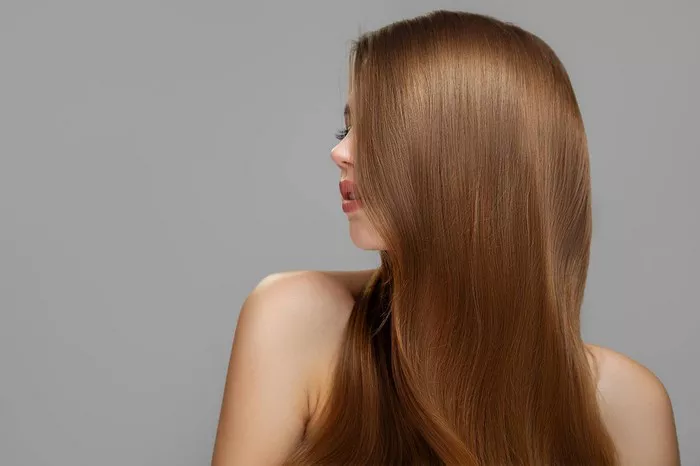As a hair stylist, I’ve seen firsthand how diet can transform hair health. While products and treatments matter, what you eat plays a huge role in how fast your hair grows and how strong it becomes. In this guide, I’ll break down the best foods for hair growth, why they work, and how to add them to your meals. Let’s dive in!
Why Does Diet Affect Hair Growth?
Hair grows from follicles beneath your scalp. These follicles need nutrients—like vitamins, minerals, and proteins—to build hair cells. Without the right fuel, hair grows slower, becomes thin, or even falls out. Think of your hair like a plant: give it good soil (your body) and water (nutrients), and it thrives. Let’s explore the key nutrients and foods that act as “fertilizer” for your hair.
Protein: The Building Block of Hair
Hair is made of keratin, a type of protein. If you don’t eat enough protein, your body can’t produce strong hair strands.
Best Protein Sources:
- Eggs: Packed with protein and biotin (more on this later!).
- Lean Meats: Chicken, turkey, and lean beef provide iron and zinc too.
- Fish: Salmon and tuna offer protein plus omega-3 fatty acids.
- Beans & Lentils: Cheap, plant-based protein for vegetarians.
- How Much to Eat: Aim for 1–2 servings of protein per meal (e.g., an egg at breakfast, grilled chicken at lunch).
Biotin: The “Hair Vitamin”
Biotin (Vitamin B7) strengthens hair and prevents breakage. Low biotin levels can lead to brittle hair.
Biotin-Rich Foods:
- Eggs (especially the yolk)
- Nuts & Seeds: Almonds, walnuts, sunflower seeds.
- Sweet Potatoes: A great source of beta-carotene too.
- Spinach: Loaded with iron and biotin.
Tip: Biotin supplements are popular, but eating whole foods is safer and more effective for most people.
Vitamin A: For a Healthy Scalp
Vitamin A helps your scalp produce sebum, a natural oil that keeps hair moisturized. Without it, your scalp gets dry, leading to hair loss.
Foods High in Vitamin A:
- Carrots: Snack on raw carrots or add them to soups.
- Sweet Potatoes: One medium potato covers your daily Vitamin A needs.
- Leafy Greens: Kale, spinach, and collard greens.
Warning: Too much Vitamin A (from supplements) can cause hair loss. Stick to food sources!
Vitamin C: Collagen Booster
Collagen is a protein that strengthens hair follicles. Vitamin C helps your body make collagen and absorbs iron (another key mineral for hair).
Best Sources of Vitamin C:
- Citrus Fruits: Oranges, lemons, grapefruits.
- Bell Peppers: Red peppers have twice the Vitamin C of oranges!
- Strawberries & Kiwi: Perfect for smoothies or snacks.
Pro Tip: Eat Vitamin C-rich foods with iron-rich meals (like spinach and lentils) to boost iron absorption.
Vitamin D: Follicle Activator
Low Vitamin D links to hair thinning and slow growth. It helps create new hair follicles—the tiny pores where hair grows.
How to Get Vitamin D:
- Sunlight: 10–15 minutes of sun exposure daily.
- Fatty Fish: Salmon, mackerel, and sardines.
- Fortified Foods: Milk, cereal, or plant-based milk with added Vitamin D.
Note: Many people are deficient in Vitamin D. Ask your doctor about a blood test if your hair is thinning.
Vitamin E: Protects Hair from Damage
Vitamin E is an antioxidant that shields hair from sun and pollution damage. It also improves scalp circulation.
Vitamin E Foods:
- Nuts & Seeds: Almonds, sunflower seeds, hazelnuts.
- Avocado: Add to salads or spread on toast.
- Spinach: A versatile leafy green.
Iron: Oxygen for Hair Follicles
Iron carries oxygen to hair roots. Low iron (anemia) is a common cause of hair loss, especially in women.
Iron-Rich Foods:
- Red Meat: Beef and lamb (heme iron, easily absorbed).
- Spinach & Lentils: Pair with Vitamin C for better absorption.
- Tofu: A plant-based option.
Signs of Low Iron: Fatigue, pale skin, and brittle nails.
Zinc: Repairs & Strengthens Hair
Zinc helps repair damaged hair tissues and keeps oil glands around follicles healthy.
Top Zinc Sources:
- Oysters: Just 2 oysters meet your daily zinc needs!
- Pumpkin Seeds: Sprinkle on yogurt or salads.
- Chickpeas: Use in hummus or curries.
Caution: Too much zinc can backfire—stick to food, not supplements.
Omega-3 Fatty Acids: Scalp Saviors
Omega-3s reduce scalp inflammation and add shine to hair. They’re found in cell membranes, keeping hair hydrated.
Best Omega-3 Foods:
- Fatty Fish: Salmon, mackerel, sardines (2–3 servings weekly).
- Flaxseeds & Chia Seeds: Blend into smoothies or oatmeal.
- Walnuts: A handful makes a great snack.
Water: Hydration Matters
Dehydration makes hair dry and prone to breakage. Drink at least 8 glasses of water daily. Add lemon or cucumber for flavor.
Foods to Avoid for Hair Health
- Sugar: Causes inflammation, harming follicles.
- Processed Foods: Lack nutrients and may disrupt hormone balance.
- Alcohol: Dehydrates hair and blocks nutrient absorption.
Other Tips for Faster Hair Growth
- Trim Regularly: Split ends won’t make hair grow slower, but they cause breakage.
- Avoid Heat Styling: Let hair air-dry when possible.
- Manage Stress: High stress triggers hair loss. Try yoga or meditation.
- Sleep Well: Hair repairs itself during sleep.
Conclusion
No single food will magically make your hair grow overnight. But a balanced diet rich in proteins, vitamins, and minerals creates the best environment for healthy, fast-growing hair. Combine this with gentle hair care, and you’ll see results in weeks!
Next Step: Pick 2–3 foods from this list to add to your meals this week. Your hair (and stylist) will thank you!
Related topics:
Does Hair Grow Quicker if You Cut It
Does Your Hair Grow Quicker if You Cut It? Uncover the truth
Hair Growth After Hair Transplant Surgery: A Detailed Guide


